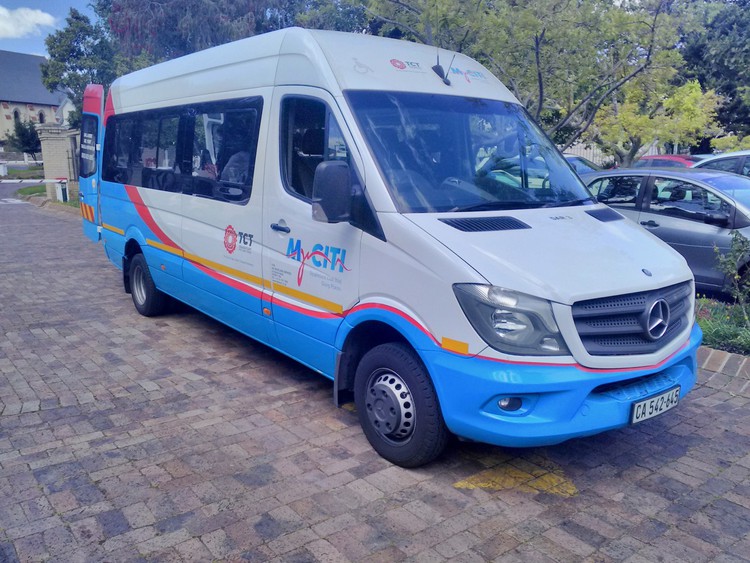Dial-a-Ride services suspended in some Cape Town areas due to taxi violence
At least 30 people with disabilities are unable to access standard public transport
Dial-a-Ride services for people with disabilities who are unable to access mainstream public transport have been suspended in some areas. Archive photo: Will Yoder
- A growing number of areas in Cape Town have been added to the no-go list for Dial-a-Ride services.
- The suspension is because of violence around the car taxi industry.
- Many people with disabilities are unable to access public transport and depend on the service.
“We are really suffering. I am supposed to start work at the end of this month in Stikland and move back home, and I am worried that I will not be able to do so because the Dial-a-Ride service might not be back by then,” said Nwabisa Ntabeni.
Ntabeni is one of many Dial-a-Ride users that have been stranded due to the suspension of the service because of the recent ongoing car taxi violence.
According to MyCiti, which operates the service, Dial-a-Ride is “a dedicated kerb-to-kerb service for people with disabilities who are unable to access mainstream public transport services”. The service had “350 regular users and 2,270 passengers on an ad hoc basis”.
The City of Cape Town announced in a statement on Friday that the service would be suspended in four areas – Nyanga, Philippi, Crossroads and Samora Machel – until “it is safe to operate” again.
But by Thursday, Khayelitsha, Kraaifontein, Gugulethu, Langa, Bonteheuwel, Dunoon, Mfuleni and Eerste River had been added to the no-go areas.
Last week, two Golden Arrow buses, two City of Cape Town vehicles and an Eskom vehicle were petrol bombed in Nyanga and Philippi, during a protest by informal car taxi drivers, popularly known as amaphela.
Ntabeni uses a wheelchair and lives in a residential facility for persons with disabilities in Lansdowne, and has been dependent on the service as her sole means of transport for about ten years.
“I cannot even visit my family and friends, especially my son in Gugulethu, because I usually take Dial-a-Ride … The home does not provide any transport except if you have to go to the hospital.”
“Why can’t the City speak to the police and organise some sort of escort for the Dial-a-Ride drivers?” asked Ntabeni. “This is really depressing. I cannot go anywhere. I am stuck here like a chained dog.”
Thulethu Maku from Nyanga said she is completely dependent on Dial-a-Ride.
“The service was suspended on Friday 18 March. I made a booking for transport on Saturday 19 March and my booking was confirmed. I found out from the Qhakaza Disability Group about the suspension. But this week I did get a call telling me that I will not be picked up,” said Maku.
Maku said she has to wheel herself in her wheelchair to work, about 15 minutes from her home.
“Communication needs to be better because it’s not like this is a free service, we are paying for it,” said Maku.
Mayoral Committee Member for Urban Mobility Rob Quintas said 30 users were being affected daily by the temporary suspension of services. The City could not say when the service would resume. “We will have to keep monitoring the areas on a daily basis to determine this.”
“Our call centre agents contact the users daily informing them of the temporary suspension of the service,” said Quintas.
Support independent journalism
Donate using Payfast

Don't miss out on the latest news
We respect your privacy, and promise we won't spam you.
Next: Taxis bring Cape Town city centre to a standstill
Previous: Cape Town suburb tries new approach to homelessness
© 2022 GroundUp. This article is licensed under a Creative Commons Attribution-NoDerivatives 4.0 International License.
You may republish this article, so long as you credit the authors and GroundUp, and do not change the text. Please include a link back to the original article.
We put an invisible pixel in the article so that we can count traffic to republishers. All analytics tools are solely on our servers. We do not give our logs to any third party. Logs are deleted after two weeks. We do not use any IP address identifying information except to count regional traffic. We are solely interested in counting hits, not tracking users. If you republish, please do not delete the invisible pixel.

